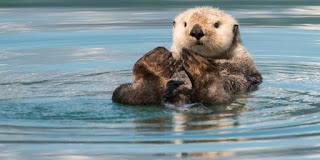Charles Darwin once mused on the impacts that predators could
have on the landscapes around them. In particular, he wondered - in On
the Origin of Species - how neighbourhood cats might affect the
abundance of flowers in the fields near his house at Downe in Kent. He
concluded the animals' potential to change local flora was considerable.
A robust cat population, he argued, would mean that local mouse numbers would be low and that, in turn, would mean there would high numbers of bumble bees - because mice destroy bee combs and nests. And as bees pollinate clover, Darwin argued that this cascade of oscillating species numbers would result in there being more clover in fields in areas where there are lots of feline pets. Cats mean clover, in short.
It
was an idea that took the fancy of Darwin's chief disciple, the
biologist Thomas Huxley who extended this cat-clover cascade in 1892 to
include old maids. They kept cats, Huxley argued, and those pets would
ensure neighbouring fields would be low in mice, high in bees and rich
in clover.
And that in turn would have powerful consequences for the
British Empire, Huxley added. Cattle graze on clover and cattle means
beef. Thus old maids would provide the perfect setting for ensuring
plenty of clover and therefore healthy cattle and good roast beef to
feed our troops and thus ensure the prosperity of the British Empire.
Old maids mean military might, in short.
Around islands that lacked sea otters, urchins had increased in size and in numbers with devastating consequences.
http://www.nzherald.co.nz/world/news/article.cfm?c_id=2&objectid=11672265






